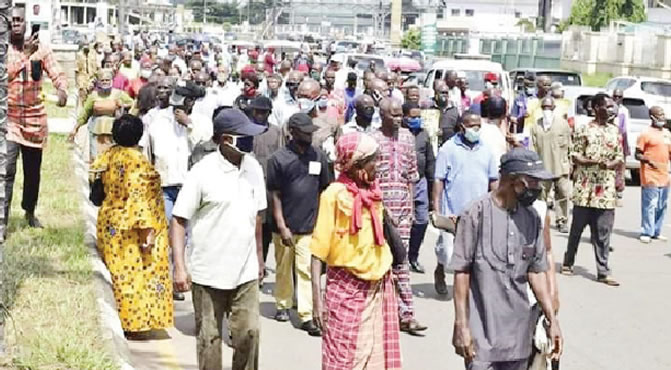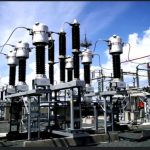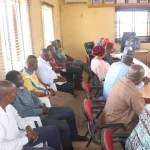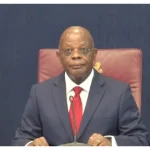...To get all news updates, Join our WhatsApp Group (Click Here)
Also Join our WhatsApp Channel (Click Here)
The backlogs of pensions owed by the federal and state governments have increased to over N193bn, findings by The PUNCH show.
Although several states such as Zamfara, Benue, Kaduna, Kano, Nasarawa, and others have been clearing the backlogs, it was gathered that the Federal Government had yet to clear over N88bn in contributory pensions, while many states were burdened by pension backlogs estimated at over N105bn.
The spokesman for the National Union of Pensioners, Bunmi Ogunkolade, confirmed to The PUNCH on Saturday that the Federal Government had yet to clear N88bn accrued rights under the Contributory Pension Scheme from March 2023 to date.
The CPS was introduced by the Pension Reform Act of 2004, and under this law, employees and employers jointly contribute to a Retirement Savings Account for each worker, making pensions more sustainable.
The law set the minimum combined contributions at 15 per cent of an employee’s monthly earnings.
The Pension Reform Act of 2014, which amended the 2004 law, further improved the CPS by increasing contributions to a combined minimum of 18 per cent and tightening regulations to ensure compliance by both private and public sector employers.
Speaking with one of our correspondents in Abuja, Ogunkolade said, “The accrued rights of contributory pensioners from March 2023 to date stands at N88bn. It is government debt; they should settle it.”
Also, a source at the National Pension Commission, who asked to be anonymous, said that efforts are being made towards paying the accrued rights.
The official said, “As for the figure, I am not in the position to confirm. But as for the issue of accrued rights being owed on account of the government not releasing the money, that is true.
‘’But efforts have not reached advanced stages. The government is about to conclude its process of ensuring that the money is released to enable the payment to retirees.”
Frustrated by the delayed payment, the pensioners have slated October 23 for a one-day rally in Abuja.
In a letter dated October 17, 2024, and addressed to all state chapters and branches, the CPS retirees under the umbrella of the NUP said the rally would be held Wednesday at the Unity fountain in Abuja.
It read, “Sequel to the resolution reached during our online meeting dated 11th October 2024, on the need to organize a peaceful mega-rally in Abuja to press home and demand the release of funds as well as payment of all our outstanding accrued rights and consequential adjustment arising from pension increments, the CAC Secretariat has come up with the following schedule for the peaceful rally to some designated offices Abuja:
“Office of the Accountant-General of the Federation; Office of the Secretary to the Government of the Federation; National Assembly and Unity Fountain.
“All state/sector chairmen and secretaries; All chairmen and secretaries of coordinating units; All statutory branch chairmen and secretaries living outside Abuja and environs, who after paying the levy assigned to them by the union for the mega-rally are capable of sponsoring a delegate or more, especially their chairman or secretary to the mega-rally, are by this letter invited to do so on their own volition.”
Meanwhile, Zamfara State Governor, Dauda Lawal, has settled N9.3bn pension arrears.
The governor’s spokesperson, Suleiman Idris, disclosed that Lawal approved the commencement of payment of the backlog of gratuities in February this year.
Idris said the government had paid N4.86bn in nine batches, adding that N4.497bn was paid to local government pensioners.
He said: “In his commitment to reform the Zamfara state civil service, in February, Governor Lawal established a committee to verify and authenticate the Zamfara State pensioners who had not been paid gratuities since 2011.
“So far, 2,666 out of the 3,880 verified pensioners have been paid their total gratuity entitlements, amounting to N4,860,613,699.22, out of the total amount owed by previous administrations. These payments have been made to beneficiaries who retired between 2015 and 2024.
“On the other hand, 3,840 out of 4804 verified retired local government and primary school teachers have so far been paid in nine batches to the tune of N4,497,129,582.13.
‘’The local government gratuity outstanding total payable arrears was N5,688,230,607.20, of which N4,497,129,582.13 has been paid to date. The beneficiaries of the payments are those who retired between 2011- 2021.’’
In summary, Idris stated, ‘’The state has so far paid a combined total of N9,357,743,281.35 as gratuity out of the cumulative sum of N13,784,179,513.80 owed by the state to a total number of 6,506 verified retired beneficiaries out of the 8,684 the total verified retired beneficiaries. The beneficiaries of the payments are those who retired between 2011- 2024.”
The Plateau State chapter of the NUP decried the non-payment of pensions and gratuity.
The Chairman of the union, Yimusa Ishaku, accused the state government of being insensitive to their plights.
He recalled that about eight months ago, Governor Caleb Mutfwang declared that his administration would clear the N30b backlog, wondering why he had not fulfilled his promise.
It was learned that the immediate past administration failed to pay pensions and gratuities amounting to N4.7bn.
The Commissioner for Local Government and Chieftaincy Affairs, Ephraim Usman, had earlier revealed that N1.7bn primary school teachers’ pension arrears had been cleared and N1.2bn out of the more than N1.6bn pension arrears for LG retirees settled.
Ishaku stated, “Pensioners in Plateau are suffering. The past administration in the state did not pay our entitlements. Some of our members are owed up to four years arrears, others two years, 13 months, or two months, depending on the time you retire.
“So, we were happy when Governor Mutfwang announced during a retreat with pensioners and other union members early this year that his administration would clear a backlog of pensions with N30b. But more than eight months after the governor made the declaration, the arrears have not been cleared, leaving our members to continue to suffer.”
However, the Director of Press and Public Affairs to the Governor, Mr Gyang Bere, said the government was doing everything possible to clear the pension backlog as promised by the governor.
“The issue of pension payment is something close to the heart of the governor. He understands the plight of the pensioners who for several years, have not been paid after their retirement benefits.
‘’It will interest you to know that the governor has given a directive and I know that the payment of pension is going on. The governor indeed mentioned N30bn but the truth is that the money is not on the ground as of the time he made the declaration. What he is doing is to set aside a certain percentage every month for the payment of pension arrears and it is going to be a gradual thing,’’ he noted.
In Benue, the retirees are also languishing as they await the payment of their pension arrears, which are estimated at about N70bn.
The state NUP Chairman, Mike Vembe, clarified that the amount represents the arrears owed pensioners by the previous administrations, noting that the present administration has been faithfully paying the pensions.
He said, “The arrears of pension allowances and gratuities owed by previous administrations are running to N70b. But the present administration is paying the allowances of pensioners beginning from the time he assumed office, including the gratuities.”
Vambe appealed to the governor to clear the backlogs.
“Some of them (retirees) are dying due to non-payment of their gratuities; my appeal to the governor is to pay these people,” he said.
Mrs Terseer, who claimed to have retired in 2019, recalled that the governor promised to address the outstanding pensions during his campaigns.
‘’But up till now, we don’t know what has become of the promise, but the government has been paying our monthly pension since he came to office,” Terseer said.
The State Commissioner for Finance, Budget and Planning, Michael Ogliegba, could not be reached for comments on Sunday.
In Kano, the state government is struggling to clear the N33b pension debts it inherited from the Umar Ganduje administration.
The state NUP Chairman, Salisu Gwale, said the amount represents death benefits, outstanding pension arrears and gratuities of retirees from October 2016 to date.
He, however, commended Governor Abba Kabir Yusuf for paying N11b backlogs.
“I have to commend Governor Abba Kabir Yusuf for paying N11b within one year to pensioners in the state. I have never witnessed such magnanimity from any government in the state,” he said.
But there appears to be no respite in sight for Kaduna pensioners under the contributory pension scheme some of whom the NUP said have not been paid their accrued rights.
The NUP Secretary, Malam Alhassan Musa, stated, “Pensioners under the defined pension scheme are receiving their monthly pensions without issues, but they are still awaiting their gratuities. Each local government area receives N15m monthly to address this.”
On the amount due to the pensioners, Musa said, “Honestly, I can’t say the exact amount being owed retirees in Kaduna State at the moment. We are meeting on November 9th, 2024, to get all the data across.”
Musa explained that the union had asked its chairmen and secretaries in the local government areas to provide detailed reports on outstanding gratuities.
“We are compiling the reports because we have to approach the state government concerning the outstanding amount,” he explained.
He noted that Senator Uba Sani-led government is striving to clear the pension arrears, adding that the state had so far paid N6.5b to the retirees.
In a positive development, the Nasarawa State government has approved the disbursement of over N2b to clear the outstanding gratuities for both local and state government retirees from 1999 to 2011.
The Senior Special Assistant to Governor Abdullahi Sule on Public Affairs, Peter Ahemba, confirmed the development.
He explained that with the improved revenues accruing to the state, the governor saw the need to clear off the backlogs of gratuities.
He urged the retirees to be patient, explaining that the unpaid entitlements had accumulated over several administrations and would take some time before they would be cleared.
“Over six years ago, the state government inherited backlogs of arrears of pensions and gratuities owed to state and local government pensioners in the state.
“But the state government recently approved over N2b for the clearance of the backlogs of retirees gratuities and pensions in the state,” he added.
Meanwhile, the situation remains bleak for Enugu State retirees, particularly former primary school and local government staff who have not been paid their pensions for 26 months.
Also, the workers who retired under the state civil service have not been paid their gratuity since September 2010, although they were getting their pensions.
Furthermore, former parastatal workers have not been paid gratuities and pensions since 2021.
The State NUP Chairman, Mr Ikechukwu Ekere, lamented the precarious conditions of the retirees, noting that many of them have died in penury.
He said, “The pensioners in Enugu State are not finding things easier at all. Saying we are suffering is an understatement. In short, we are dying, especially those who served in primary schools, local governments, and parastatals.
“The local government and primary schools pensioners are being owed 26 months arrears of pensions and gratuities from 2006 to date.
“Government set up a committee to look into their problem, and after looking at their problems and submitting the report to the governor, nothing has happened.”
Speaking further, Ekere stated, ‘’He (Enugu governor) set up a committee to verify and find out the authentic people who are pensioners in the local governments and primary schools, which had been done and the promise that was given is that immediately after the verification, those that have been identified as authentic pensioners should be paid and for the past three months or four months, they have verified 7,109 as authentic pensioners.
“But as I am talking to you, the government had paid them August and September but of the 7,109 that have been verified, almost 300 of them have not even received that of August let alone September.”
The Kwara state NUP Chairman, Alhaji Saidu Oladimeji, said the state government has ceased paying pensions to retired workers.
When asked about the pension backlogs, he simply stated, “I don’t want to answer the question because I don’t know when pensioners were paid last in the state. There is a maxim that ‘rest is sweet after labour’ but the reverse is the case for pensioners in Kwara state. Our situation is ‘rest is bitter after labour.’
It was learned that the gratuities were being paid to retirees piecemeal.
The Chief Press Secretary to the governor, Mallam Rafiu Ajakaye, directed inquiries on the issue to the Head of Service, Mrs Susan Oluwole and the chairman of the State Civil Service Commission.
“Kindly direct this to the HOS Office or the Civil Service Commission. They are better suited to give you details. What I can tell you is that I still saw retirees collecting cheques for their gratuities as recently as early October”, Ajakaye said.
Both the state Commissioner for Communication, Mrs Bolanle Olukoju and the Chairman of the Local Government Service Commission, Alhaji Umar Shero, did not respond to calls and SMS.
You can get every of our news as soon as they drop on WhatsApp ...To get all news updates, Join our WhatsApp Group (Click Here)
Also Join our WhatsApp Channel (Click Here)
















